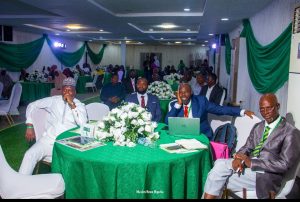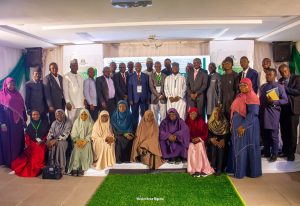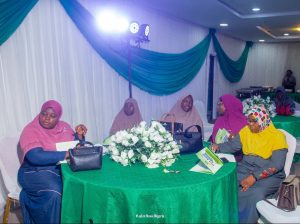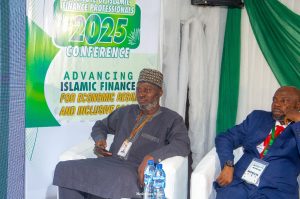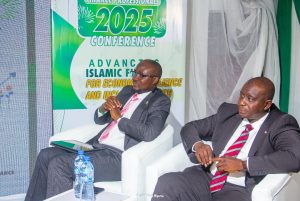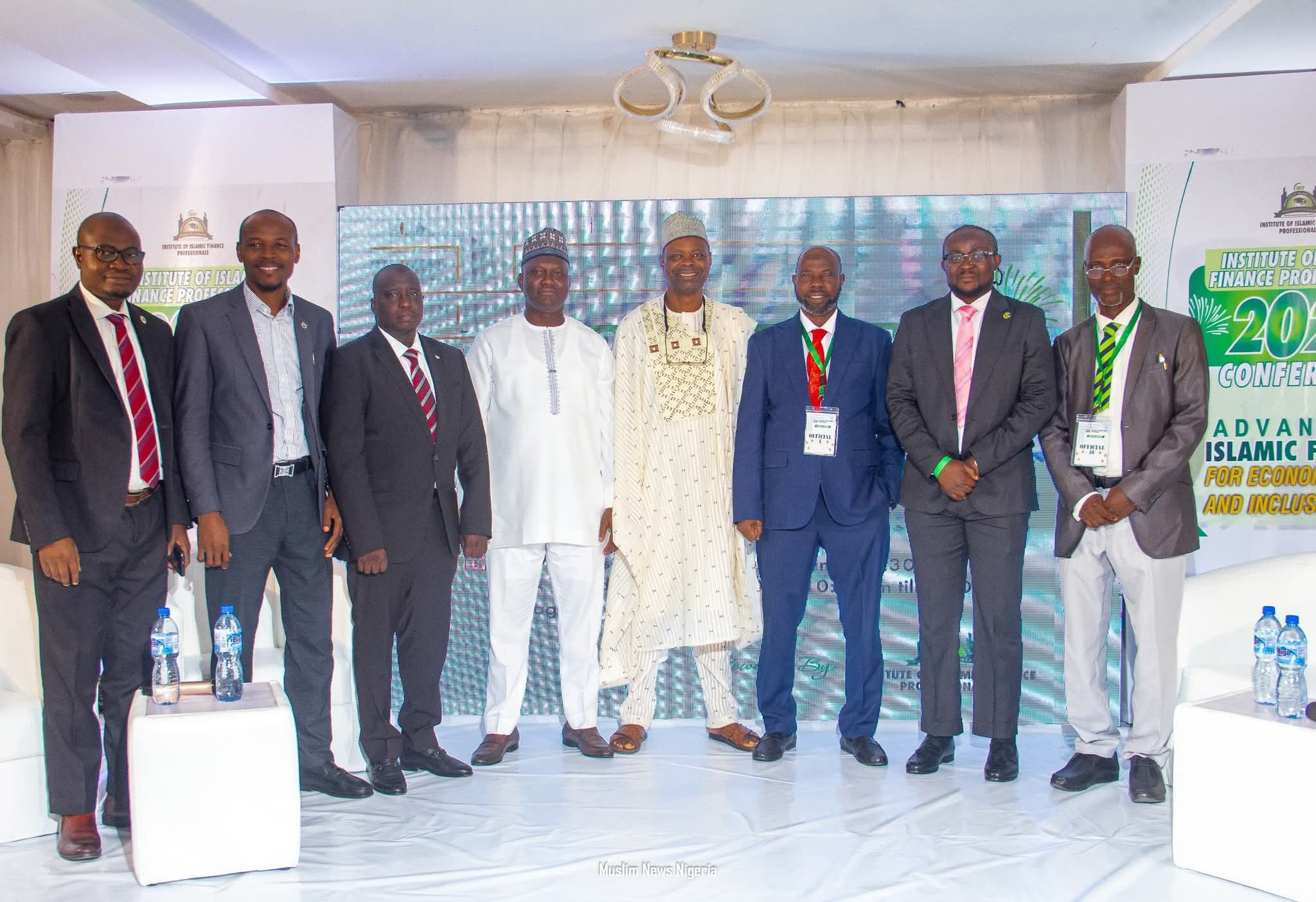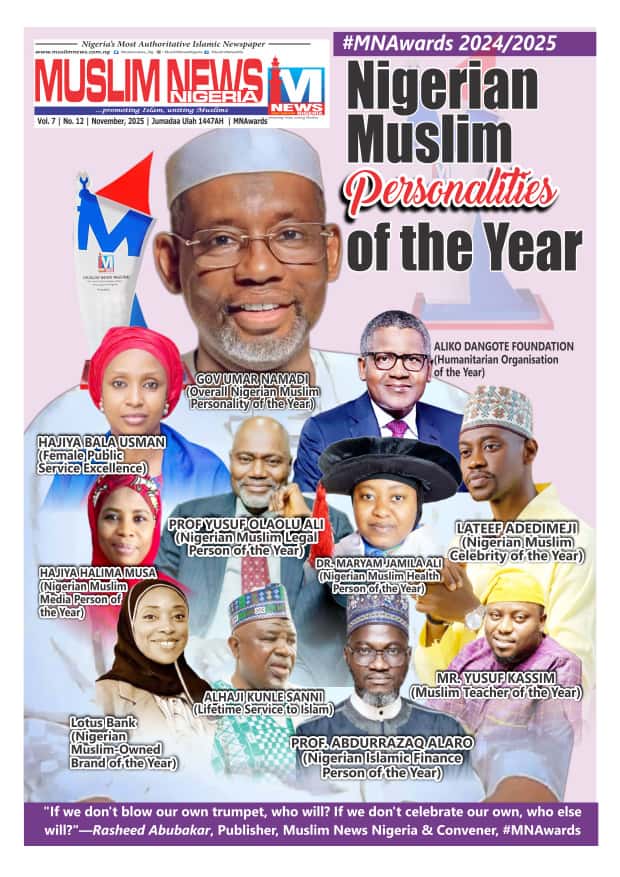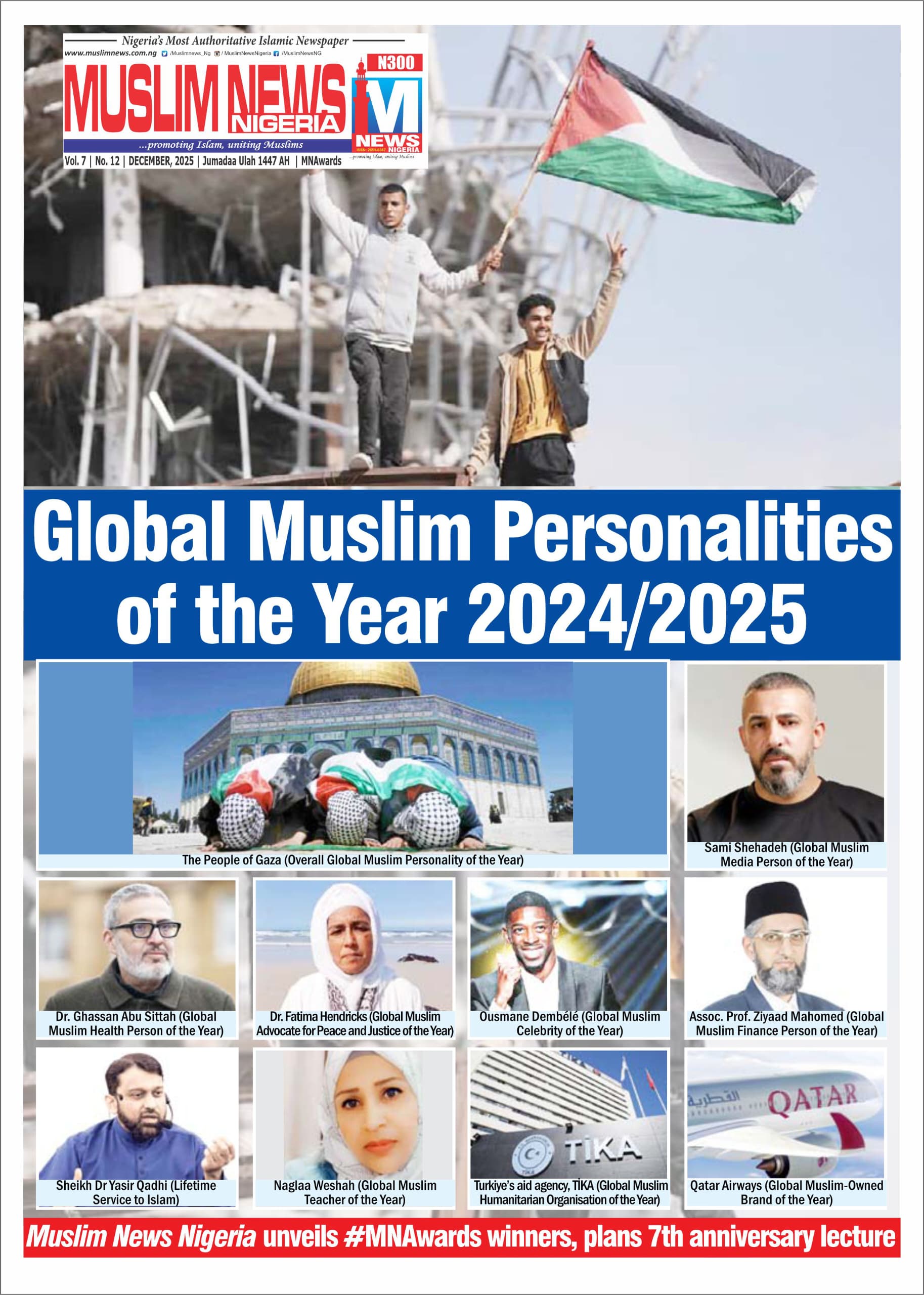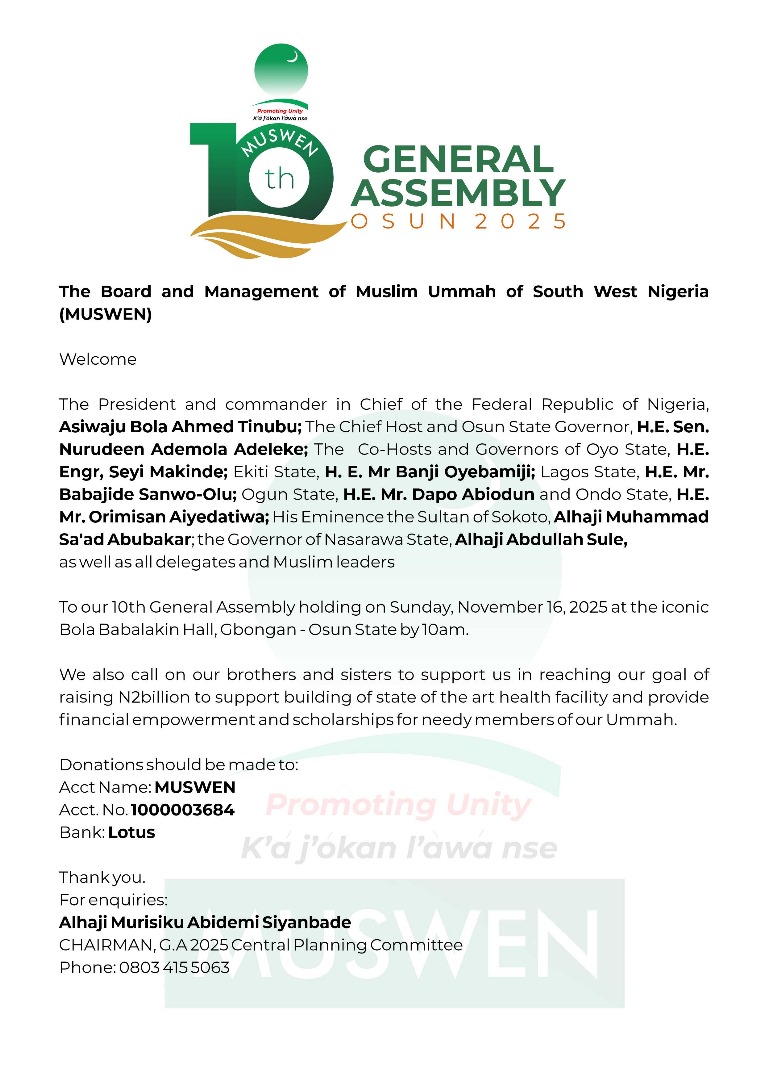* Stakeholders speak at annual Conference
Director of Executive Education and Consulting at Nungu Business School, Dr. Jibril Salaudeen has called for a critical review of the Islamic finance sector in Nigeria, stressing the need to assess progress made and identify areas requiring urgent improvement.
Dr Salaudeen disclosed this while speaking as a guest during the 2025 annual stakeholders’ conference of the Institute of Islamic Finance Professionals (IIFP) held on Wednesday, with the focus on Advancing Islamic Finance for Economic Resilience and Inclusive Growth.
He explained that the annual conference was convened to evaluate both achievements and shortcomings in the Nigeria’s Islamic finance ecosystem.
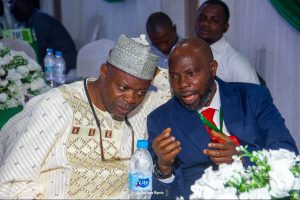
According to him, “We’ve come to do a review today, and look at all the areas to improve and the areas where we think we are doing well, and the areas where we are actually not doing so well. By the time we all go back to our various institutions, we will be able to come up with something that is more rewarding and engaging.”
While acknowledging successes in the issuance and acceptance of sukuk (Islamic bonds), the financial expert noted that other segments—particularly Islamic banking, insurance (takaful), and capital markets—have not received adequate public attention.
He said, “In terms of areas where we are doing well, today, the word is out there about sukuk. In the area of sukuk, I think we are doing well. But in terms of getting the word out for Islamic banking, Islamic insurance, and Islamic capital market, we are not doing what we are supposed to be doing.”
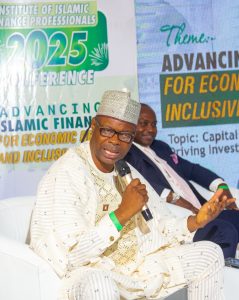
Dr. Salaudeen, while speaking with Muslim News, emphasised the need for greater collaboration among Islamic banks and the launch of public awareness campaigns across traditional and digital media.
“We are looking at collaboration to compete, bringing Islamic banks together and do major campaigns in Nigeria, looking at the press, the newspaper, the blog, the TV, the radio, so that we can further deepen Islamic banking in Nigeria,” he noted.
The Director of Executive Education also stressed the importance of product standardisation within Islamic banking and called for grassroots mobilisation to promote takaful.
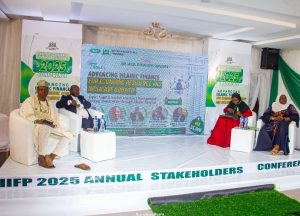
He noted that “We are also looking at standardisation of products, especially for Islamic banking. For takaaful, we are looking at creating more awareness, particularly going through local Imams and scholars across Nigeria to see how they can help use the power of the minbar.”
In a call to action, financial expert also encouraged Nigerians to open Islamic finance accounts and consider ethical funding options.
“If you do not have an Islamic finance account today, you need to go and get one. A lot of good things are happening in that space and you need to be part of it. Also, when you think of raising fund for your organisation, look at the Islamic capital market, you are raising ethical and Shari’ah-compliant fund, which will be good for you.”
He concluded by highlighting the relevance of takaful in everyday life.
“For those of us that drive cars, look at motor insurance coming from takaful. We have a lot of takaful companies around. Partnering with them will be more beneficial for us.”
Maqasid al-shari’ah, core principle of Islamic finance, says Dr. Bashir Oshodi
Also, speaking at the event, Dr Bashir Oshodi, Managing Director of Trust Arthur, and President of Non-Interest Financial Institutions Association of Nigeria (NIFIAN) stressed on the relevance of maqasid al-shari’ah, describing it as the core of Islamic finance.
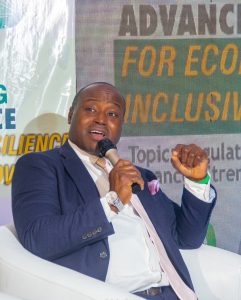
Dr. Oshodi identified maqasid al-shari’ah as one of the variables to advance Islamic finance in the promotion of good and harmony with others rather than simply eschewing the bad
“To advance Islamic finance, capacity building is major. But apart from capacity building, we need to talk about self-motivation generally, combined with entrepreneurship and maqasid al-shari’ah,” he said.
He defined maqasid as “anything that touches human lives positively — the product, process, governance, or interaction”, outlining its five objectives: “To protect human self, preserve wealth, intellect, posterity, and faith. It is beyond SDGs, beyond going green. It is for the pleasure of Allah.”
The Trust Arthur boss advocated aggressive public awareness using the mosque, individual associations, and social media to promote Islamic finance products.
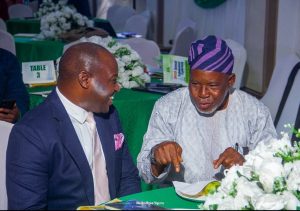
“People share all sorts of news on social media and get millions of viewers. That means we have the power to spread this news. All of us should try our best to share news on Islamic finance, even if it is just one product. We should let people know that this thing exists, including its benefits,” he added.
Dr. Salaudeen and Dr Oshodi’s remarks serve as both a progress report and a rallying call for stakeholders to further develop and deepen the Islamic finance sector in Nigeria.
Ex-NAHCON boss laments Muslims’ low patronage of Islamic finance
Speaking earlier while declaring the event open, former Chairman of National Hajj Commission of Nigeria (NAHCON), Alhaji Zikrullah Olakunle Hassan raised concerns over the level of Muslims’ involvement in the Isamic finance industry in Nigeria.
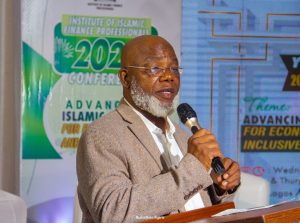
According to Alhaji Hasan, who chaired the conference, “As important as Muslims are economically, as numerous as we are, the percentage of investment in Islamic finance is still very, very low.”
The host and founding President of the Institute, Prof. Tajudeen Olalekan Yusuf, therefore urged Muslims to embrace and see the Islamic finance industry as their own, expressing confidence it will outpace the conventional finance system.
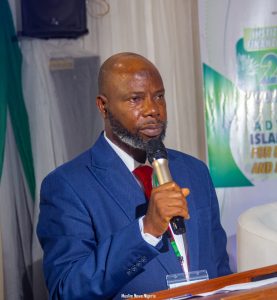
Prof. Yusuf said there would be teething challenges for the industry, but stakeholders should remain resilient and dogged. Read more HERE
Mr. Tajudeen Olusesi, Head of Business Development at Al-Hilal Takaful Nigeria Limited, who represented the Executive Director of Technical Operations, Hajia Muibat Jimoh, stressed the critical role of regulatory bodies in shaping the future of Islamic finance in Nigeria. Read more HERE
Some of the beautiful faces at the event
